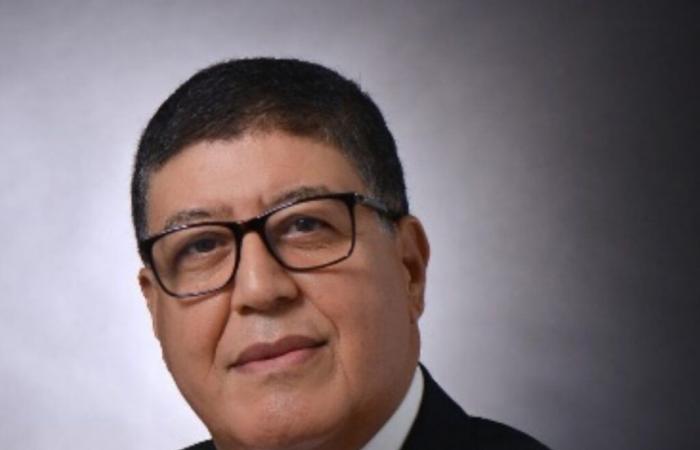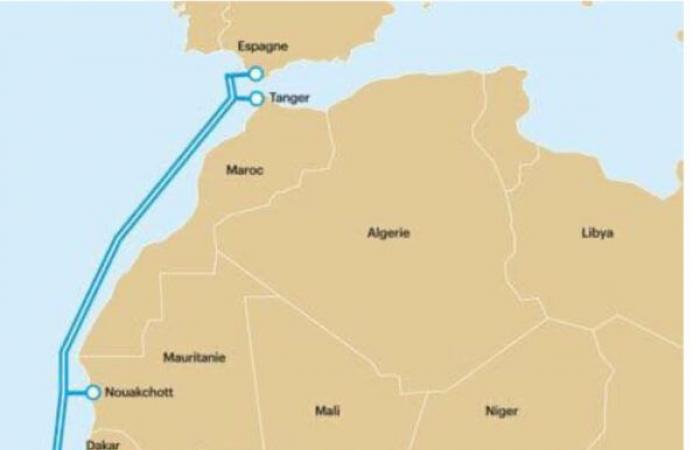By Mohamed H’MIDOUCHE
In a global context where energy dynamics are profoundly redefined by complex geopolitical issues, the African Atlantic Gas Pipeline (GAA) stands out as a strategic project. While the United States, under the leadership of President Donald Trump, has just adopted an energy policy resolutely focused on the expansion of its national production and the increase in its exports of fossil fuels, Europe is intensifying its quest for alternative energy sources to reduce its dependence on Russian gas. These developments, amplified by the repercussions of the Russian-Ukrainian conflict, place energy at the heart of geopolitics and international relations.
Faced with these transformations, the GAA, linking Nigeria to Morocco and potentially to Europe, positions itself as an ambitious African response to global energy challenges. By being part of a strategy to diversify energy supplies, it offers a unique opportunity for the African continent to consolidate itself as a key player in the global energy transition while promoting its regional integration.
In this context of growing energy rivalries, this forum explores the role of the GAA in the reconfiguration of global energy flows. It highlights how this project reflects an ambitious pan-African vision and meets the requirements of sustainability, regional integration and international cooperation, while highlighting the strategic issues linked to recent geopolitical developments.
A Strategic Vision for Energy and Regional Integration
The African Atlantic Gas Pipeline is much more than energy infrastructure. Designed to connect Nigeria, the continent’s leading natural gas producer, to Morocco, a strategic gateway to Europe over more than 5,600 kilometers, this project will cross 13 African ECOWAS member countries in addition to Mauritania. It embodies an ambitious pan-African vision aimed at promoting the continent’s energy autonomy, accelerating regional integration and strengthening global energy security.
Announced during the visit of His Majesty King Mohammed VI to Nigeria in December 2016, the project marked a decisive step in South-South cooperation. This strategic partnership between Morocco and Nigeria, consolidated by the support of ECOWAS countries and Mauritania, is a model of cross-border collaboration, aligned with common objectives of economic development and energy integration.
A Structuring Project in the Service of Africa
It will be an extension of the existing gas pipeline in West Africa, which connects Lagos, Nigeria, to cities such as Cotonou, Lomé, Tema and Takoradi. By crossing capitals such as Abidjan, Monrovia, Freetown, Conakry, Bissau, Dakar and Nouakchott, it will be part of a strategy aimed at connecting African energy resources to major international markets. Its route ends in Tangier, Morocco, with a possible connection to Europe via Cadiz, Spain.
This strategic infrastructure will also make it possible to take advantage of recent gas discoveries in countries such as Ghana, Ivory Coast, Mauritania and Senegal, while diversifying sources of gas supply for Europe, a crucial issue in the current context of the global energy crisis.
Recall that this project was officially announced during the visit of His Majesty King Mohammed VI to the Federal Republic of Nigeria, from December 1 to 3, 2016, as part of His African tour. This visit followed that of His Excellency Muhammadu Buhari, President of the Federal Republic of Nigeria, to Marrakech in November 2016, on the occasion of COP 22.
According to the Official Press Release published at the end of the royal visit to Nigeria (official source), the two Heads of State expressed their commitment to supporting structuring projects for the socio-economic development of the continent. In particular, they agreed to accelerate the implementation of theTangier-Lagos Trans-African Highway and to achieve the Nigeria-Morocco gas pipelinewhile highlighting the opportunities offered by this project. The two leaders also highlighted the economic benefits that it will generate once completed, particularly for the countries it will pass through, thus consolidating regional and global cooperation in the field of energy.
A Response to Energy and Environmental Challenges
The GAA constitutes a concrete response to the growing energy needs of West Africa. By connecting economies to modern energy infrastructure, it helps close chronic energy deficits while reducing gas flaring, an environmentally harmful practice. Natural gas, considered a transitional energy, will reduce greenhouse gas emissions by replacing more polluting energy sources such as coal and oil.
Rigorous mechanisms, including environmental and social impact assessments (ESIA), were integrated from the early phases of the project to ensure its alignment with international sustainability standards. Additionally, the project directly contributes to achieving Africa’s climate goals while ensuring reliable access to modern energy for millions of people.
-A Lever of Socio-Economic Development
The socio-economic benefits of the GAA are immense. In addition to the income generated by gas transit, the project will stimulate the development of rural areas through access to energy, create thousands of jobs along its route and promote the transfer of technologies and expertise. . It represents a unique opportunity for the countries crossed to accelerate their economic development while integrating into a promising regional dynamic.
For Nigeria, this project opens new access to European markets, diversifies its export routes and maximizes the valorization of its natural resources. For ECOWAS countries, it symbolizes a major step towards collective energy autonomy and increased economic integration within the framework of the African Continental Free Trade Area (AfCFTA).
A Project Supported by Strong Political Will
The African Atlantic Gas Pipeline is the result of a convergence of strong political will, embodied by His Majesty King Mohammed VI and the leaders of partner countries. This project reflects the royal vision of a unified, resilient and prosperous African continent. ECOWAS has played a key role in ensuring a solid cooperation framework and mobilizing member countries around a common ambition.
Furthermore, this gas pipeline embodies a clear geopolitical strategy: strengthening links between sub-Saharan Africa and North Africa while positioning the continent as a key player in the global energy transition. By diversifying gas supply routes for Europe, it also helps stabilize international energy markets.
An Inspiration for the Future of Africa
The GAA is much more than an energy project: it is a declaration of intent on the future of the continent. Thanks to strengthened regional cooperation and the support of international technical and financial partners, it could become a model for other structuring projects in Africa.
By combining sustainability, innovation and regional integration, the African Atlantic Gas Pipeline paves the way for a more resilient, autonomous and prosperous Africa. It demonstrates that ambitious projects can not only address current energy challenges, but also transform the continent’s economic and social realities.
As Africa aspires to become a central player in the global energy transition, the GAA positions itself as a catalyst for change and a symbol of what the continent can achieve when it joins forces around common goals.
By connecting Nigeria to Morocco and Europe via a strategic route, the GAA is a pivotal project for African energy integration and international cooperation. It reflects a bold vision of regional transformation and a commitment to energy sustainability. Yet to deliver on its promises, the project must adapt to the changing dynamics of the global energy market. This includes the need to integrate advanced technologies, secure strong partnerships, and align its objectives with the priorities of international actors, while meeting the growing energy needs of African countries.
In conclusion, it can be considered that the African Atlantic Gas Pipeline is not only an energy infrastructure, but a symbol of African unity in the face of a global geopolitical reconfiguration. In an environment where American energy policy is redefining market priorities, this project has the potential to position Africa as a key player in the global energy transition, while strengthening its regional integration and promoting sustainable growth for the benefit of its populations. .
About
Mohamed H’MIDOUCHE is an international banker with 47 years of experience dedicated to the economic and social progress of Africa. He is the founder and CEO of Inter-Africa Capital Group (IACG), a strategic consulting firm. He has held several key positions at the African Development Bank (AfDB) and is an international consultant to the United Nations. He is also Honorary Consul of the Republic of Cape Verde in Morocco, Executive Vice-President of the African Diplomatic Academy (ADA), Administrator of the African Institute of Governance and active member of various economic and diplomatic organizations, such as the Moroccan Association of Business Economists (AMEE), the Moroccan Institute of Strategic Intelligence (IMIS) and the Moroccan Institute of International Relations (IMRI).







